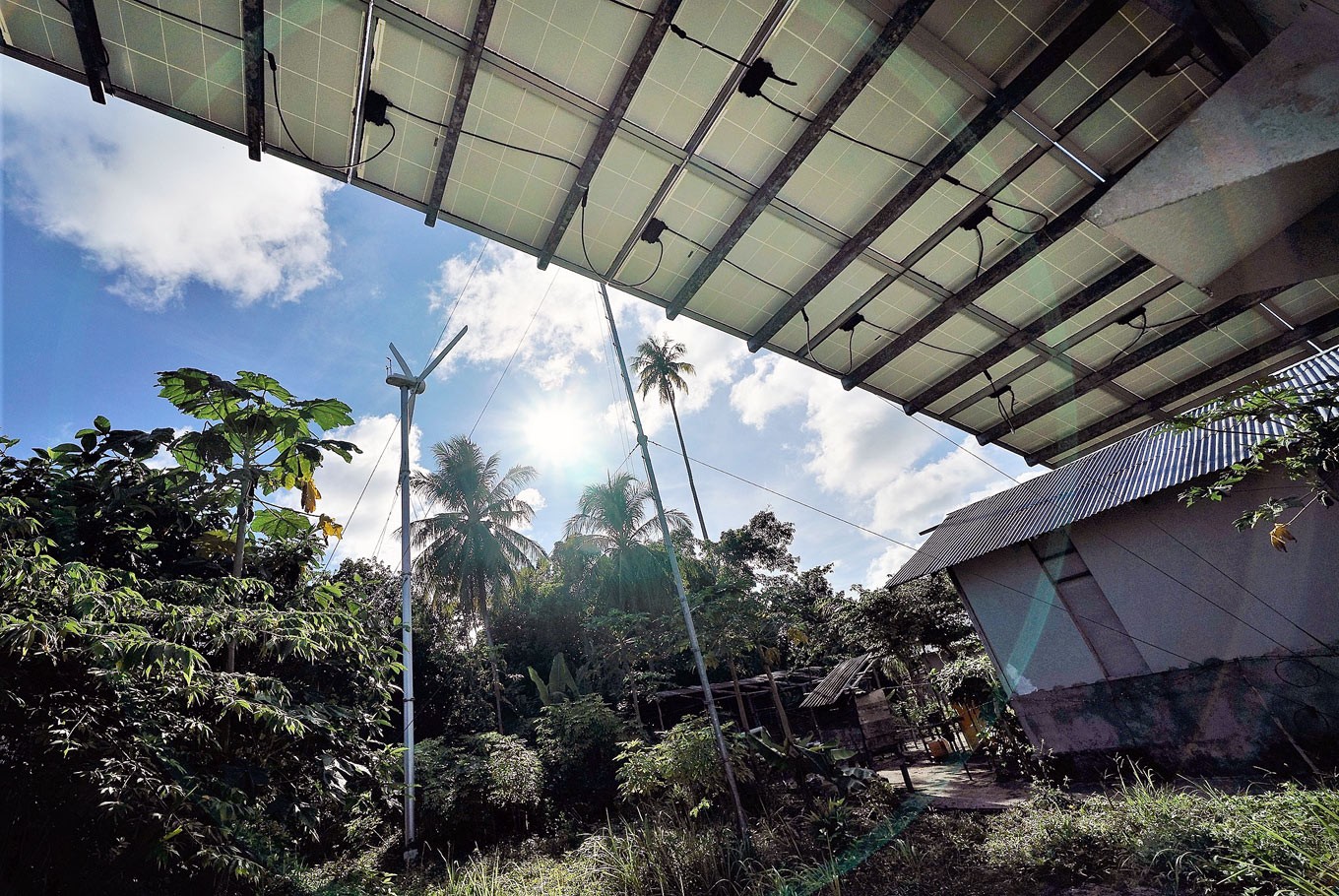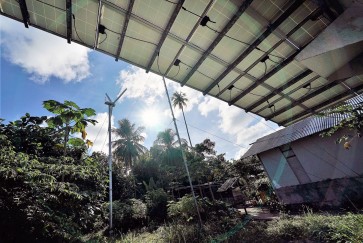Popular Reads
Top Results
Can't find what you're looking for?
View all search resultsPopular Reads
Top Results
Can't find what you're looking for?
View all search resultsGreening a pandemic recovery: Options for Indonesia
Not only will the fiscal stimulus stimulate the deployment of renewable energy sources contributing to the low-carbon recovery but it will also support inclusive recovery.
Change text size
Gift Premium Articles
to Anyone
T
he year 2020 marked another milestone for the low-carbon energy transition. Amid the global economic slowdown induced by the COVID-19 pandemic, renewable energy (RE) sets the new record for the global renewable energy capacity expansion, including in Southeast Asia.
ASEAN Power Updates (2021) reported that renewable energy played a significant role in the power sector during the pandemic as around 82 percent of total ASEAN new capacity in 2020 came from renewable energy. As of 2020, renewable energy reached 95 gigawatts (GW) in installed capacity.
Renewable energy also shows resilience when it comes to investment. In 2020, investment in renewables hit US$359 billion, up 6.85 percent from the previous year. This contributed to more than 70 percent of total investment spent on all new generation capacity that year. The positive trend lays the basis for optimism for a greener world after the pandemic.
Optimism toward a green and sustainable recovery is also fueled by the opportunity to channel the COVID-19 related fiscal stimulus for green spending. On average, Group of 20 countries have allocated around 15.83 percent of their gross domestic product (GDP) for fiscal stimulus during the COVID-19 pandemic.
Learning from the 2008 global financial crisis, when green fiscal stimulus resulted in the development of renewable energy, many see this as a “rare and short window of opportunity”. Especially given the unprecedented size of economic packages launched by governments throughout the pandemic.
Allocating COVID-19 fiscal stimulus to renewable energy may also provide a “double dividend”. Not only will this stimulate the deployment of renewable energy sources contributing to the low-carbon recovery but also support inclusive recovery. A number of studies have shown the positive impact of renewable energy stimulus on job creation (see Popp et al (2020) for example).
A recent joint study by the World Resources Institute, the International Trade Union Confederation and the New Climate Economy also reveals that the impact of investment in renewable energy on job creation is stronger than unsustainable investments.


















